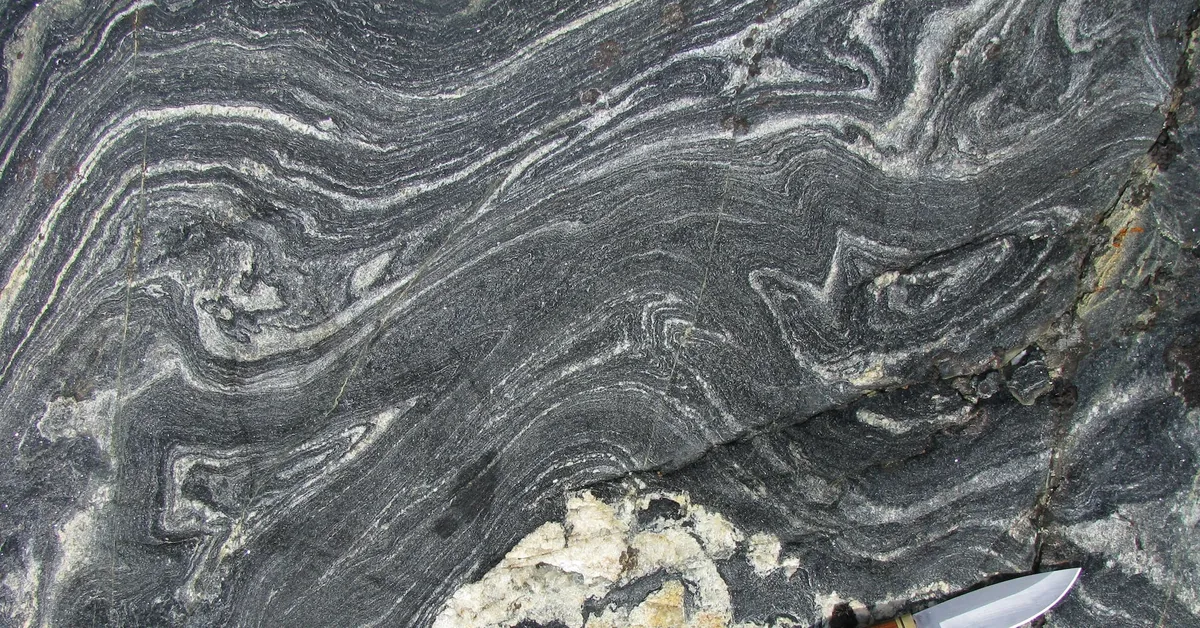
On June 26, a groundbreaking discovery was reported regarding the oldest rocks on Earth, located along the eastern shore of Hudson Bay in Quebec, Canada. Near the Inuit municipality of Inukjuak, a belt of volcanic rock characterized by dark and light green hues, along with flecks of pink and black, has been confirmed to date back to an astonishing 4.16 billion years ago. This period falls within the Hadean eon, a time named after Hades, the ancient Greek god of the underworld, due to the extreme conditions believed to have prevailed on Earth during that era.
The research highlights that the Nuvvuagittuq Greenstone Belt contains remnants of Earth's oldest crust, representing the planet's outermost solid layer. The rocks from this region are primarily metamorphosed volcanic rocks of basaltic composition, meaning they have undergone significant changes due to heat and pressure over billions of years. Basalt, a prevalent type of volcanic rock, plays a crucial role in understanding the geological history of our planet.
The study utilized two distinct dating methods, which focused on the radioactive decay of the elements samarium and neodymium found within the rocks. Both methods yielded consistent results, confirming the age of the rocks as 4.16 billion years. This finding marks a significant advancement in geological research, as it provides insights into the early conditions of Earth during the Hadean, a period characterized by a lack of physical evidence.
Researchers believe that the Nuvvuagittuq rocks may have formed as rain fell onto molten rock, cooling and solidifying into the crust. This primordial rain was likely composed of water evaporated from Earth's early oceans. The composition of these rocks, some of which originated from ancient seawater, could reveal critical information about the environment of the first oceans, including temperature and chemical makeup, which are essential for understanding where life might have first emerged on Earth.
Prior to this discovery, the oldest-known rocks were thought to be approximately 4.03 billion years old and sourced from Canada's Northwest Territories. However, tiny zircon crystals from western Australia have been dated to 4.4 billion years, presenting an ongoing debate about the planet's early history. The Hadean eon, lasting from Earth's formation about 4.5 billion years ago to around 4.03 billion years ago, witnessed significant geological events, including a massive collision believed to have led to the formation of the moon.
There has been some controversy surrounding the age of the Nuvvuagittuq rocks. A previous study from 2008 reported conflicting ages—one showing 4.3 billion years and another ranging from 3.3 to 3.8 billion years. Researcher O'Neil explained that discrepancies may arise from the sensitivity of the dating methods used, which could be influenced by thermal events affecting the rocks after their formation. The latest study, however, provides a clearer picture, establishing a minimum age for the volcanic rocks containing the intrusions at 4.16 billion years, suggesting they could be as old as 4.3 billion years, aligning with earlier findings.
This remarkable discovery in the Nuvvuagittuq Greenstone Belt not only pushes back the timeline of Earth's geological history but also opens new avenues for research into the planet's early conditions and the origins of life itself.